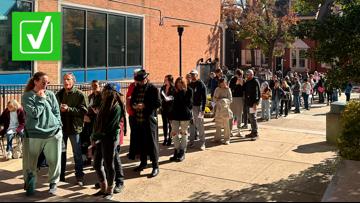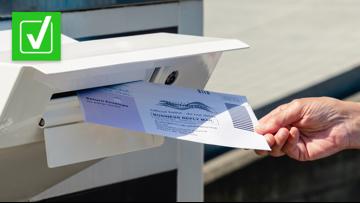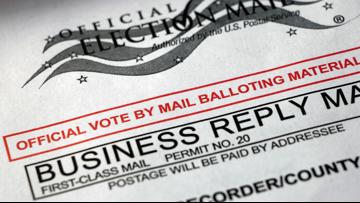Members of Congress are constantly fundraising, filling their war chests for the next election.
That means when they ultimately decide to leave office, they often still have significant cash on hand. But if they’re not running again, what do they do with the leftover campaign funds?
VERIFY viewer Karen asked if politicians are allowed to do whatever they want with the remaining money.
THE QUESTION
Can politicians do whatever they want with leftover campaign funds?
THE SOURCES
THE ANSWER
No, politicians cannot do whatever they want with leftover campaign funds.
WHAT WE FOUND
Campaign finance rules for candidates for federal office – Congress, president, or vice president – are regulated by the Federal Election Commission (FEC).
According to the FEC, these politicians have several options for how they can legally spend leftover money when they leave office.
First, they’re allowed to spend the funds on “winding down” expenses. This can mean paying any outstanding bills or debts, or costs required to close up their offices.
Some politicians choose to issue refunds to individual donors.
Some choose to do nothing with the money, in case they want to run again sometime in the future. Regulations allow politicians to keep campaign accounts open indefinitely as long as they continue to follow reporting requirements.
The money can be donated to charity – though there are laws against kickback schemes wherein the departing politician immediately goes to work for that charity and gets paid by them.
It can also be donated to other political candidates; however, the donation size is capped. The federal contribution limit is $2,000 per election, and there are other limits for state and local candidates.
It can be donated to political action committees, though these donations are also limited – $5,000 per year is the maximum allowed from a campaign account to a PAC.
Politicians can donate an unlimited amount of their leftover funds to their party’s state, local, or national committees, such as the RNC or DNC.
They can also convert their official campaign committee into a political action committee, giving them even more flexibility.
But there is one category of spending explicitly prohibited by federal law: personal use. Campaign funds cannot simply be deposited into the retiring politician’s bank account or used to pay their mortgage. Some uses, such as legal expenses, are considered grey areas by the FEC and evaluated on a case-by-case basis.
This law is not always followed. An investigation by VERIFY sister station WTSP and the Tampa Bay Times found numerous instances in which campaign money was spent on sports tickets, expensive meals, liquor, or doling out checks to friends and family.
Following the report some of these campaigns were investigated by the FEC.












